Tiffany, Anaplastic Large Cell Lymphoma Survivor
Tiffany, Anaplastic Large Cell Lymphoma Survivor
On Christmas Eve 1998, I received the phone call no one wants to get. “Your pathology report came back. You have cancer.”
Back up one week: I was a senior at the University of Scranton. I had just wrapped up the university’s musical theater production of “The Boyfriend” as Masie, one of the leads. I was assistant choreographer and dance captain for the show. I was carrying a full load of credits. I was writing my thesis for the Honors Program that I was going to defend in the spring. I even had found time for a part time job on campus. So, if you asked me if I had fatigue, I would have told you I was exhausted.
I also had a lingering cold for almost 2 months that I blamed on “burning the candle at both ends”, as they say. What college student doesn’t? What did strike me as a little weird was the sweating. I was sweating profusely through my clothes. I experienced night sweats, but also noticed I was sweating so much that I had to change what I was wearing even during the day. I wound up chalking this up to the bad cold I had and ignored it.
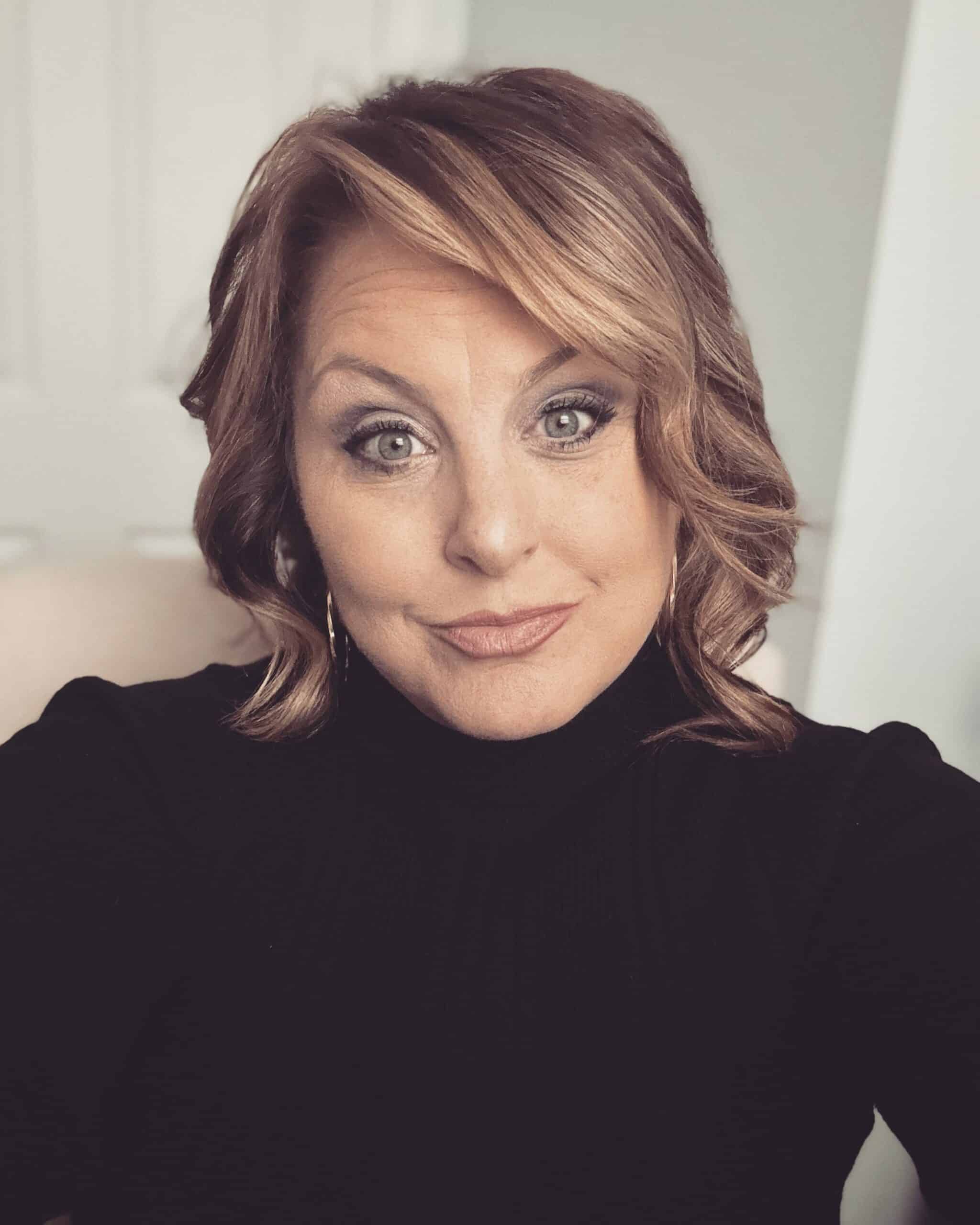
One week prior to my diagnosis, I woke up to brush my teeth only to feel a lump in my upper lip. It was about the size of a pea. I thought it was an odd place to have a cyst, and figured it would go away on its own. Two days later it was still there, and it had doubled in size. By the weekend, it was so painful I couldn’t eat or drink anything.
I called my uncle Frank, who was our family dentist, because by now I was convinced that it was an abscessed tooth causing this lump. When I went to go see him, he did some x-rays but then got very quiet and left the room to call my mother. He told her he was concerned because this was nothing dental related and said that I should see my primary care doctor. The next day I went to see my primary care doctor. He ran a few blood tests and did a chest x-ray, which all came back negative. He said I was young and healthy, he wasn’t concerned, and that it should go away on its own.
By the next day, my face had swollen up like someone had hit me in the face with a football. I started spiking fevers upwards of 103 degrees. My mother called my primary care doctor back and told him what was going on, only for him to say he still wasn’t concerned and to give it more time. At this point, my uncle called an oral surgeon and asked that I be seen.
My mom took me in to see the oral surgeon who did some x-rays and ironically also agreed with my PCP. He too said I was young and healthy, and this was nothing a couple of weeks of antibiotics wouldn’t take care of. My uncle insisted that it should be removed. Begrudgingly, the oral surgeon agreed to remove it in the office, and I vividly remember him saying to my mom, “There are too many cooks in the kitchen, but I will take it out”.
They sat me down in a chair in one of the exam rooms, numbed my lip and three nurses held open my mouth as the oral surgeon removed the mystery lump. When the surgery was over, he said I would have some additional swelling but then I should heal nicely and could put this all behind me.
Then the strangest thing happened. As my mother and I were leaving the office to go home and were just getting out of the elevator to go to our car, the oral surgeon came down the stairs to meet us in the lobby. He put his arms around the both of us and said, “Don’t worry, cancer doesn’t look like this”.
At this point, no one had said cancer, but we still breathed a sigh of relief and thought the worst was over. I would have a few more weeks of swelling, which at the time seemed to be the worst of my problems. Little did I know what was coming next.
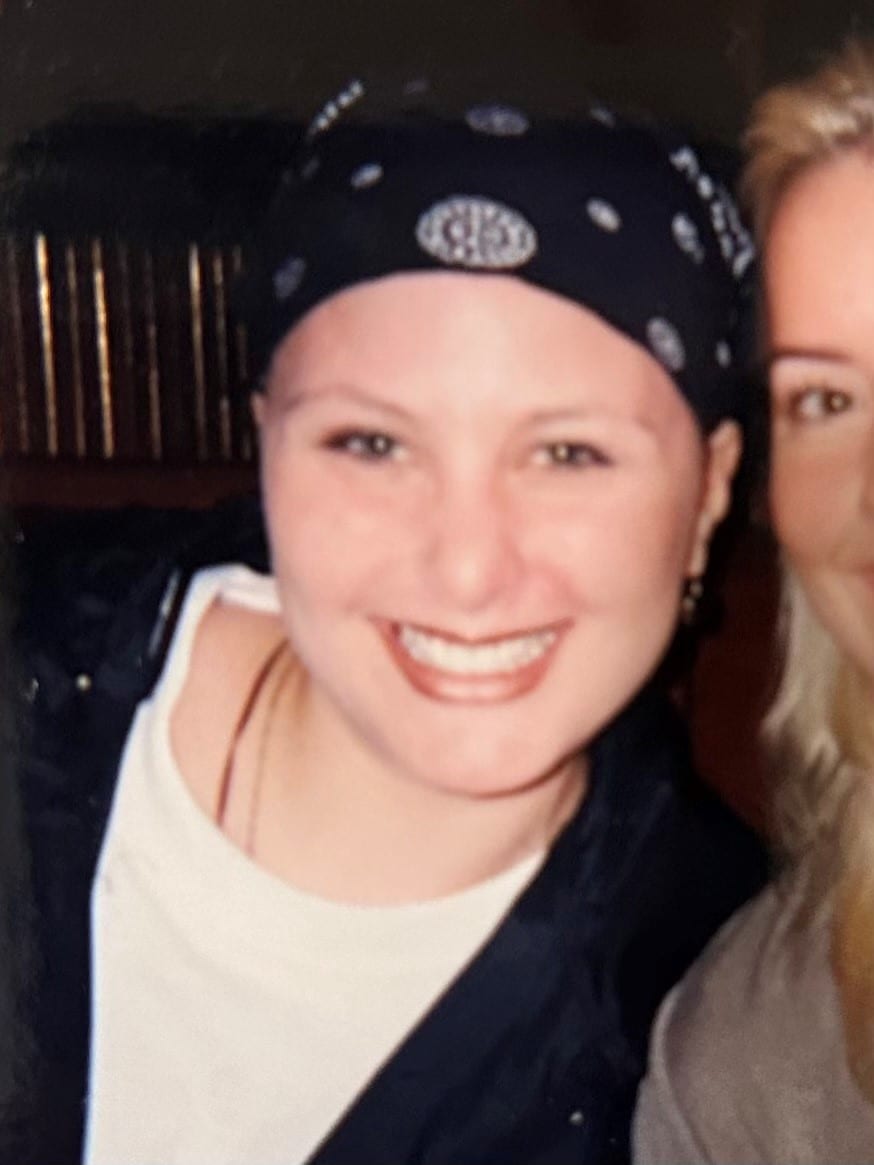
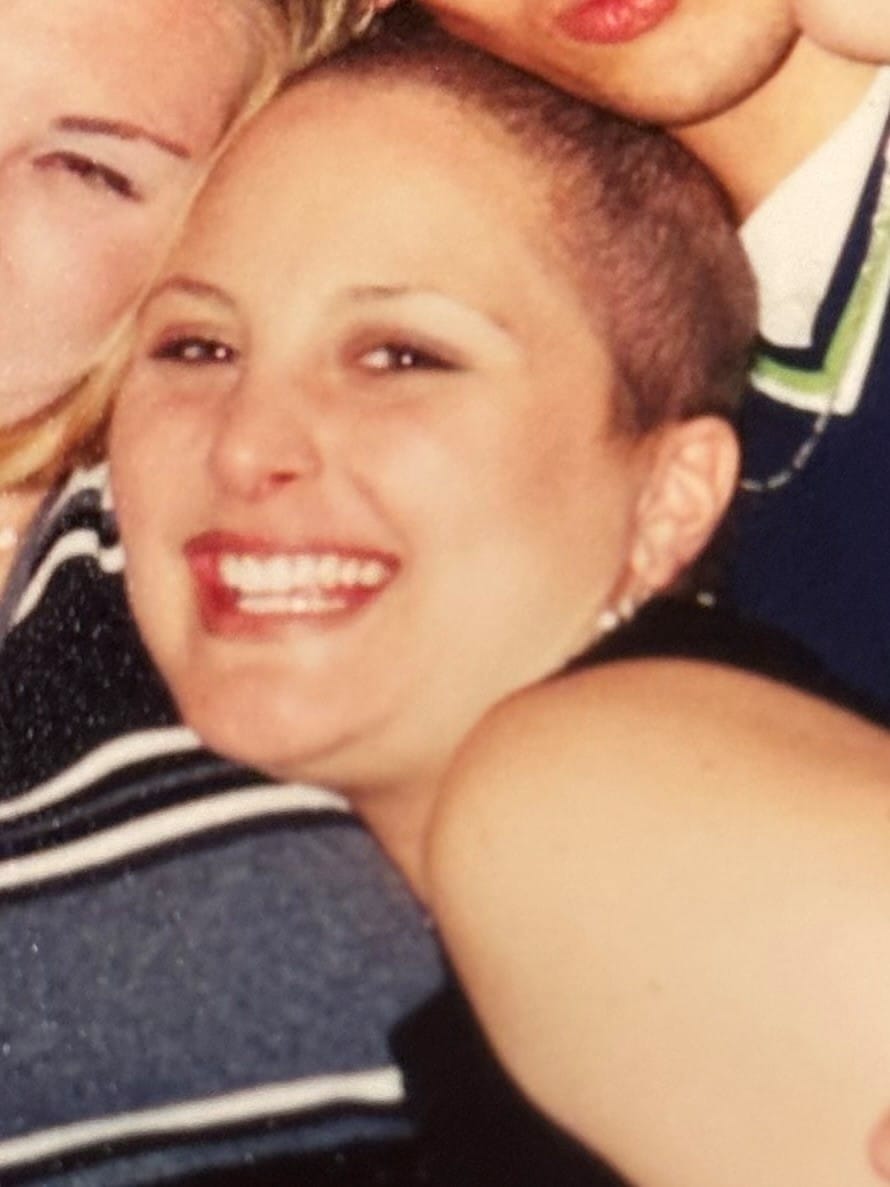
The morning of Christmas Eve, just a day and half later, amid preparing Christmas Eve dinner with my mother and my sister (in Italian, we call it the Feast of the Seven Fishes), the phone rang, and I answered it from my bedroom. On the other end of the line was Dr. Jonathon Kloss, the young oncologist from Lourdes Hospital in Binghamton, NY who had the unfortunate luck of being on call that day. The words that came next are the ones that no one wants to hear: “Your pathology report came back. You have cancer”.
My sister who was in medical school at the time got on the phone with him. After she hung up with him, she said, “We need to go to the ER now”. When we arrived at the hospital, Dr. Kloss explained that they were not sure whether I had lymphoma or leukemia, so I would need to spend the next week in the hospital getting further testing.
After a CT scan, PET scan, bone marrow biopsy, spinal tap, and numerous vials of blood later, they determined I had stage 1 aggressive anaplastic large T-cell non-Hodgkin lymphoma. I would require chemotherapy and radiation as my treatment. I was given a 97% cure rate because they had found it so early, all thanks to the relentless efforts of my uncle Frank who would not take no for an answer.
On January 6, 1999, my 24th birthday, I began my chemotherapy. I did three rounds over the course of about 3 months. Once I finished CHOP, I was given a few weeks of reprieve for my counts to come back to a normal level so that they could begin radiation. In mid-March of 1999, I began radiation. I went every single day for 30 days straight for localized radiation to my face.
I lost my hair. I developed sores in my mouth and throat. There were days I slept 18 hours. I couldn’t eat. But the hardest was when I was told that I would probably never be able to have children due to my treatment.
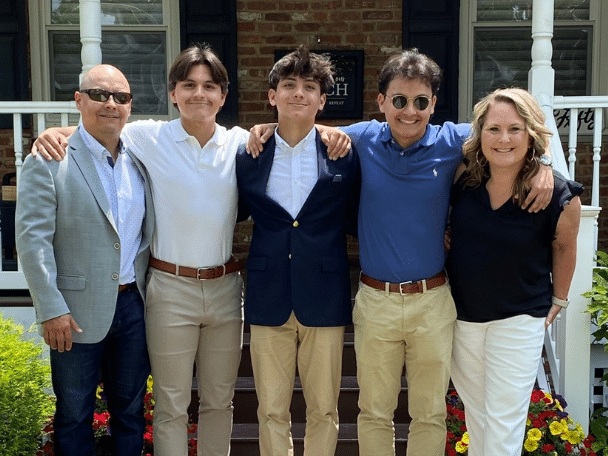
Twenty-five years later I am happy to tell you that I survived it all and I have three of the most amazing sons. Gabe, 19, is at the University of Scranton. Sam, 17 is a senior at Westfield High School. And Nate, just turned 14, a freshman and on the football team at Westfield High School. I thank God for them every day.
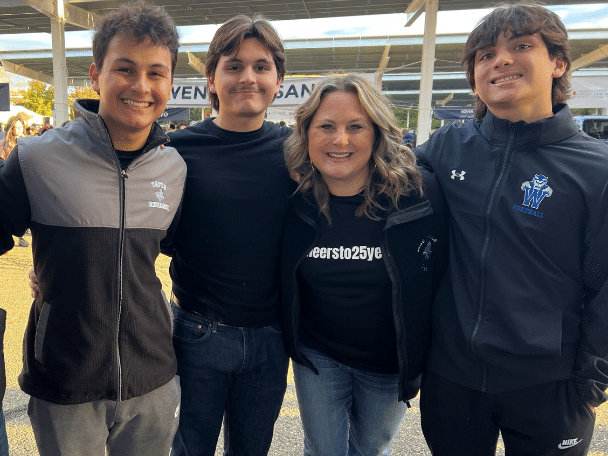
There is a saying by Theodore Roosevelt. “Courage is not having the strength to go on, it is going on when you don’t have the strength.” This is what every cancer patient does. I am honored and blessed to be here all these years later to be able to share my story. Being given this opportunity to share my own journey gives meaning to my cancer.
